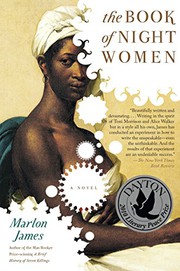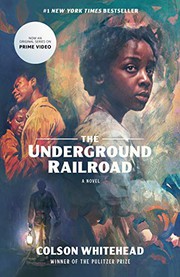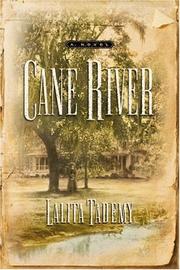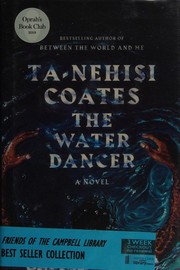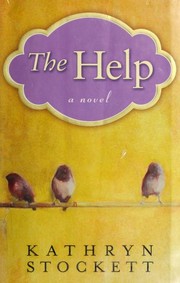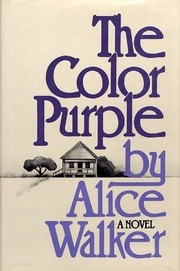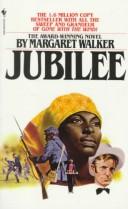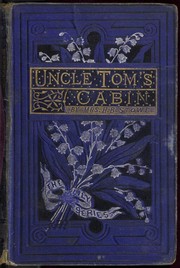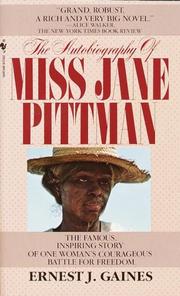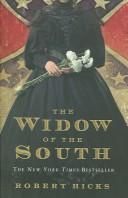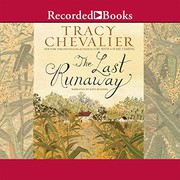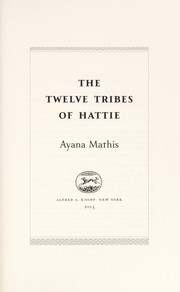Are you fascinated by the history of plantation life? Delve into the complexities of this era with our curated list of the 20 best books on plantation life. These captivating narratives offer a glimpse into the lives of those who lived and worked on plantations, exploring the relationships, struggles, and triumphs of this tumultuous time in history. From non-fiction accounts to gripping novels, these plantation life books are sure to transport you to a bygone era.
Contents
- 1 20 Best Books About Plantation Life
- 2 The Invention of Wings
- 3 The Kitchen House
- 4 The Book of Night Women
- 5 The Underground Railroad
- 6 Beloved
- 7 The Known World
- 8 Cane River
- 9 The Water Dancer
- 10 The Help
- 11 The Color Purple
- 12 The Confessions of Nat Turner
- 13 Kindred
- 14 Jubilee
- 15 Uncle Tom’s Cabin
- 16 The Autobiography of Miss Jane Pittman
- 17 The Widow of the South
- 18 The Last Runaway
- 19 The Healing
- 20 The House Girl
- 21 The Twelve Tribes of Hattie
- 22 Conclusion
- 23
- 24 Books about Hard Work And Success: 2024 Updated Guide to Essential Reading
- 25 20 Man Best Books to Read – The 2024 Edition
- 26 Books about Turning 60: 2024's Best Titles
20 Best Books About Plantation Life
The Invention of Wings
by Sue Monk Kidd
The Invention of Wings by Sue Monk Kidd is a captivating novel set in the early 19th century, exploring the intertwined lives of Sarah Grimké, a young woman from a wealthy Southern family, and Hetty “Handful”, a slave gifted to Sarah on her eleventh birthday. The novel delves into the complexities of power, race, and gender in the antebellum South, offering a poignant portrayal of the struggles and resilience of both women. As the story unfolds, Sarah and Handful navigate their respective roles in society and confront the brutal realities of plantation life. The novel is a compelling and thought-provoking exploration of the human spirit and the quest for freedom, making it a must-read for anyone interested in delving into the nuances of plantation life.
The Kitchen House
by Kathleen Grissom
The Kitchen House by Kathleen Grissom is a captivating novel that delves into the complex dynamics of life on a Southern plantation in the 18th century. The story follows the intertwined lives of Lavinia, an orphaned Irish immigrant, and Belle, the head house slave, as they navigate the harsh realities of plantation life. Grissom skillfully explores the relationships between the white owners and their slaves, shedding light on the power dynamics, love, and betrayal that shape their world. The book offers a poignant and thought-provoking portrayal of the complexities of race, identity, and family in the backdrop of plantation life. With its rich storytelling and vivid characters, The Kitchen House is a compelling and immersive read that provides a deep insight into the struggles and triumphs of those living in a plantation environment.
The Book of Night Women
by Marlon James
The Book of Night Women by Marlon James is a powerful and haunting novel set on a Jamaican sugar plantation in the 18th century. The story follows Lilith, a young slave girl born into brutality and oppression, who discovers her own strength and resilience as she navigates the treacherous world of the plantation. Through Lilith’s eyes, readers are exposed to the harsh realities of life on the plantation, including the violence, exploitation, and dehumanization suffered by the enslaved people. The novel delves into the complexities of power, identity, and resistance, and offers a raw and unflinching portrayal of the brutality of plantation life. Marlon James has created a gripping and thought-provoking narrative that sheds light on a dark chapter of history, making it a must-read for anyone interested in the realities of life on a plantation.
The Underground Railroad
by Colson Whitehead
The Underground Railroad by Colson Whitehead is a compelling and harrowing novel that takes readers on a journey through the brutal and oppressive world of slavery in America. The story follows Cora, a young slave on a Georgia plantation, as she escapes and seeks freedom through the Underground Railroad, which in this novel is depicted as a real network of underground trains and tunnels. This powerful narrative sheds light on the inhumane treatment of slaves and the lengths they went to in order to break free from the shackles of oppression. Whitehead’s vivid and evocative writing brings to life the desperation and resilience of those living in the harsh reality of plantation life. The novel is a poignant and thought-provoking exploration of the human spirit and the quest for freedom in the face of unimaginable adversity.
Beloved
by Toni Morrison
Beloved by Toni Morrison is a powerful and haunting novel that delves into the lives of former slaves living in post-Civil War Ohio. The story revolves around Sethe, a woman who escaped from slavery and is now haunted by the memories of her past. When a mysterious young woman named Beloved enters her life, Sethe is forced to confront the trauma of her experiences on the plantation. The novel explores the themes of family, memory, and the legacy of slavery, and is a poignant and thought-provoking look at the enduring impact of the plantation life. Morrison’s lyrical prose and rich character development make this a compelling and unforgettable read, and a must-read for anyone interested in understanding the complexities of the plantation life.
The Known World
by Edward P. Jones
The Known World by Edward P. Jones is a captivating novel that delves into the complexities of antebellum America, offering a unique perspective on the institution of slavery. Set in Virginia, the story revolves around a black slave owner, Henry Townsend, and the intricate web of relationships that surround him. Jones skillfully weaves together the lives of various characters, both free and enslaved, to create a rich tapestry of plantation life. The novel explores the moral and social implications of slavery, challenging readers to confront the harsh realities of this dark period in history. Through vivid storytelling and nuanced character development, The Known World offers a thought-provoking examination of power, race, and identity in a world defined by its commitment to the institution of slavery.
Cane River
by Lalita Tademy
Cane River by Lalita Tademy is a captivating historical novel that delves into the intricacies of life on a Southern plantation. Set in the antebellum and post-Civil War South, the story follows the lives of four generations of women from the same family, offering a rich and poignant exploration of the complexities and struggles of plantation life. Through vivid and compelling storytelling, Tademy brings to life the harsh realities of slavery, the complexities of family dynamics, and the resilience of the human spirit. The novel is a powerful and moving portrayal of the deep-seated bonds that connect generations, as well as an unflinching look at the lasting impact of slavery on individuals and families. Cane River is a must-read for anyone interested in a thought-provoking and insightful exploration of the plantation life.
The Water Dancer
by Ta-Nehisi Coates
The Water Dancer by Ta-Nehisi Coates is a captivating novel that delves into the harsh realities of life on a plantation. Set against the backdrop of the antebellum South, the story follows the journey of Hiram Walker, a young enslaved man with a remarkable power. As he grapples with the trauma of his past and the brutality of plantation life, Hiram discovers his ability to teleport through the power of memory. This extraordinary gift propels him into a dangerous and thrilling adventure as he joins the Underground Railroad in a quest for freedom and justice. Coates’ lyrical prose and vivid storytelling bring to life the complexities of the human experience in the midst of oppression and resistance. A powerful and thought-provoking exploration of resilience and hope in the face of adversity, The Water Dancer is a must-read for anyone seeking a deeper understanding of the plantation life.
The Help
by Kathryn Stockett
The Help by Kathryn Stockett is a captivating novel that delves into the lives of African American maids working in white households in 1960s Mississippi. The story is told from the perspectives of three women who come together to challenge the societal norms of the time. The book sheds light on the complexities of race relations, the struggles of African American women, and the injustices they faced while working in the homes of white families. Through their courage and determination, these women bring to light the harsh realities of life in the segregated South. The Help is a powerful and thought-provoking book about plantation life, filled with rich characters and a compelling narrative that will keep readers engaged from start to finish.
The Color Purple
by Alice Walker
The Color Purple by Alice Walker is a powerful and emotionally intense novel that delves into the lives of African American women in the early 20th century. Set in the American South, the book explores the hardships and abuse faced by women living on a plantation. The story follows the life of Celie, a young black woman who struggles with poverty, oppression, and the trauma of abuse. Through her letters to God, Celie finds solace and strength, and ultimately discovers her own voice and resilience. The Color Purple is a poignant and moving portrayal of the resilience and spirit of women in the face of adversity. It is a remarkable and unforgettable book that sheds light on the struggles of individuals living in a society that is deeply entrenched in racism and inequality.
The Confessions of Nat Turner
by William Styron
The Confessions of Nat Turner by William Styron is a powerful and controversial novel that delves into the complex and harrowing world of slavery in the American South. Through the first-person narrative of Nat Turner, a literate slave who led a famous rebellion in 1831, the book offers a searing portrayal of the brutality and dehumanization of plantation life. Styron’s vivid and evocative prose brings to life the harsh realities of slavery, as well as the internal struggles and conflicts faced by its victims. The novel has sparked intense debates about its portrayal of race and history, but it remains a thought-provoking and compelling exploration of a dark chapter in American history. This book about plantation life is an essential read for anyone seeking a deeper understanding of the complexities and traumas of the antebellum South.
Kindred
by Octavia Butler
Kindred by Octavia Butler is a gripping and thought-provoking novel that takes readers on a journey through time and explores the complexities of slavery and its impact on the present. The story follows Dana, a modern-day African American woman who finds herself inexplicably transported back in time to the antebellum South, where she must navigate the harsh realities of plantation life. As Dana’s inexplicable time travel continues, she is forced to confront the brutalities of slavery and the complexities of her own identity. Butler’s powerful narrative delves into the psychological and emotional toll of living in a society built on oppression and inhumanity. Through her compelling storytelling, Butler offers a unique and deeply moving exploration of the lasting legacy of slavery and its impact on contemporary society.
Jubilee
by Margaret Walker
Jubilee by Margaret Walker is a captivating novel that provides a vivid portrayal of life during the antebellum and postbellum periods. Set against the backdrop of the American South, the story follows the life of Vyry, a woman of mixed race who experiences the hardships and triumphs of plantation existence. This powerful narrative delves into the complexities of race, identity, and resilience, offering a compelling insight into the struggles faced by those living in the oppressive system of slavery. With its richly detailed portrayal of the plantation economy, cultural traditions, and familial bonds, Jubilee immerses readers in a world fraught with both despair and hope. This book about plantation life is a poignant and thought-provoking exploration of the human spirit in the face of adversity, making it a must-read for anyone seeking a deeper understanding of this tumultuous period in American history.
Uncle Tom’s Cabin
by Harriet Beecher Stowe
Uncle Tom’s Cabin, written by Harriet Beecher Stowe, is a groundbreaking novel that exposes the harsh realities of slavery in the American South. The story follows the lives of several characters, including Uncle Tom, a kind and devout slave, and Eliza, a young mother fleeing from the horrors of slavery. Through their experiences, the novel vividly portrays the brutality and inhumanity of plantation life, shedding light on the suffering and struggles of enslaved individuals. Stowe’s powerful and emotional narrative sparked widespread outrage and played a significant role in the abolitionist movement. With its compelling storytelling and powerful themes, Uncle Tom’s Cabin remains a timeless and influential work that continues to shed light on the dark chapter of American history.
The Autobiography of Miss Jane Pittman
by Ernest J. Gaines
The Autobiography of Miss Jane Pittman by Ernest J. Gaines is a captivating novel that delves into the life of a woman who has lived through the tumultuous times of slavery, emancipation, and the Civil Rights Movement. Set in the deep South, this book offers a poignant and powerful portrayal of the struggles and triumphs of African Americans living in the plantation era. Through Miss Jane Pittman’s remarkable journey, readers gain insight into the harsh realities of life on the plantation, the resilience of the human spirit, and the quest for freedom and equality. This compelling narrative provides a window into the complexities of race, identity, and the enduring legacy of slavery. A truly remarkable and unforgettable exploration of the African American experience, this book about plantation life is a must-read for anyone seeking a deeper understanding of American history and the human condition.
The Widow of the South
by Robert Hicks
The Widow of the South by Robert Hicks is a captivating novel set in the midst of the Civil War, offering a poignant glimpse into the lives of those living on a Southern estate. This book delves deep into the intricacies of plantation life, exploring the struggles and triumphs of the characters against the backdrop of war and societal upheaval. Through vivid storytelling and rich historical detail, Hicks paints a vivid portrait of the challenges faced by the widow, Carrie McGavock, as she navigates the complexities of her role in a changing world. The novel offers a compelling narrative that immerses readers in the emotional landscape of the era, making it a must-read for anyone interested in immersive historical fiction or book about plantation life.
The Last Runaway
by Tracy Chevalier
The Last Runaway by Tracy Chevalier is a captivating historical novel set in 1850s Ohio, focusing on the life of a young Quaker woman named Honor Bright. The story follows Honor as she leaves England and settles in the unfamiliar world of American frontier life, grappling with the challenges of adapting to a new culture and the complexities of the Underground Railroad. As she becomes involved in helping runaway slaves, Honor is faced with difficult moral choices and the consequences of her actions. Chevalier’s vivid storytelling and meticulous attention to historical detail bring the world of the Underground Railroad to life, making this book a compelling read for anyone interested in the struggles and triumphs of individuals living in a time of great social change.
The Healing
by Jonathan Odell
The Healing by Jonathan Odell is a compelling novel set in the antebellum South, delving into the complexities of life on a Southern plantation. This powerful story explores the lives of the enslaved individuals and the white plantation owners, weaving a tale of resilience, love, and the pursuit of freedom. The book provides a raw and honest portrayal of the hardships, injustices, and triumphs experienced by those living in the plantation community. Through vivid storytelling and rich character development, Odell paints a vivid picture of the challenges and conflicts that defined this tumultuous period in American history. The Healing is a mesmerizing and thought-provoking book about plantation life that will leave readers captivated and deeply moved by the resilience and strength of the human spirit.
The House Girl
by Tara Conklin
The House Girl by Tara Conklin is a captivating novel that weaves together the lives of two women separated by centuries but connected by the complexities of plantation life. The story follows Josephine, a young slave girl in 1852 Virginia, and Lina, a modern-day attorney working on a reparations lawsuit. Josephine’s story unfolds as she seeks freedom through her art, while Lina delves into her family’s past and the truth behind a painting that may hold the key to the lawsuit. Conklin’s evocative prose and intricate storytelling bring the harsh realities of plantation life to life, while exploring themes of identity, resilience, and the enduring impact of history. This gripping and poignant novel is a must-read for anyone interested in a book about plantation life and the legacy it leaves behind.
The Twelve Tribes of Hattie
by Ayana Mathis
The Twelve Tribes of Hattie is a captivating novel that delves into the lives of the African-American Shepherd family over several decades. Set against the backdrop of the Great Migration, it offers a poignant exploration of the challenges and triumphs faced by the twelve children of Hattie, the family matriarch. Ayana Mathis skillfully weaves together the complex and often turbulent experiences of each sibling as they navigate love, loss, and identity in a rapidly changing America. This powerful book on plantation life is a rich tapestry of storytelling, shedding light on the enduring legacy of slavery and its impact on subsequent generations. Mathis’ prose is evocative and deeply moving, making The Twelve Tribes of Hattie a must-read for anyone seeking a thought-provoking and emotionally resonant exploration of plantation life.
Conclusion
In conclusion, the 20 best books about Plantation Life offer a captivating and often heart-wrenching glimpse into the history of plantations and the lives of those who lived and worked on them. These books provide valuable insights into the complexities of the plantation system and its impact on individuals and communities. Whether through fiction or non-fiction, these books shed light on an important aspect of our history and are essential reads for anyone seeking to understand the legacy of plantation life.
Which Plantation Life book is best?
The best book on Plantation Life can vary with personal preference, but three widely recommended titles are:
- The Invention of Wings by Sue Monk Kidd,
- The Kitchen House by Kathleen Grissom,
- The Book of Night Women by Marlon James.
Each offers valuable insights and could be a great starting point.
What are the best books to learn about Plantation Life?
For those looking to learn about Plantation Life, there is a wealth of literature that can provide a comprehensive understanding of the subject. Some of the most highly recommended books include:
- The Invention of Wings by Sue Monk Kidd,
- The Kitchen House by Kathleen Grissom,
- The Book of Night Women by Marlon James,
- The Underground Railroad by Colson Whitehead,
- Beloved by Toni Morrison,
- The Known World by Edward P. Jones,
- Cane River by Lalita Tademy,
- The Water Dancer by Ta-Nehisi Coates,
- The Help by Kathryn Stockett,
- The Color Purple by Alice Walker
These books offer a range of perspectives on Plantation Life, covering various aspects and approaches to the subject.
What are the best books on Plantation Life?
The best books on Plantation Life include:
- The Invention of Wings by Sue Monk Kidd,
- The Kitchen House by Kathleen Grissom,
- The Confessions of Nat Turner by William Styron,
- Kindred by Octavia Butler,
- The Water Dancer by Ta-Nehisi Coates,
- The Known World by Edward P. Jones.
Each offers unique insights into the subject. While these books on the topic of Plantation Life are highly regarded, it’s important to note that any list of ‘best’ books is subjective and reflects a range of opinions.
What are the best Plantation Life books of all time?
Choosing the best Plantation Life books of all time can vary depending on who you ask, but seven titles that are often celebrated include
- The Invention of Wings by Sue Monk Kidd,
- The Kitchen House by Kathleen Grissom,
- Beloved by Toni Morrison,
- The Water Dancer by Ta-Nehisi Coates,
- The Color Purple by Alice Walker,
- Kindred by Octavia Butler,
- and The Confessions of Nat Turner by William Styron.
Each of these books has made a significant impact in the field of Plantation Life and continues to be influential today.



